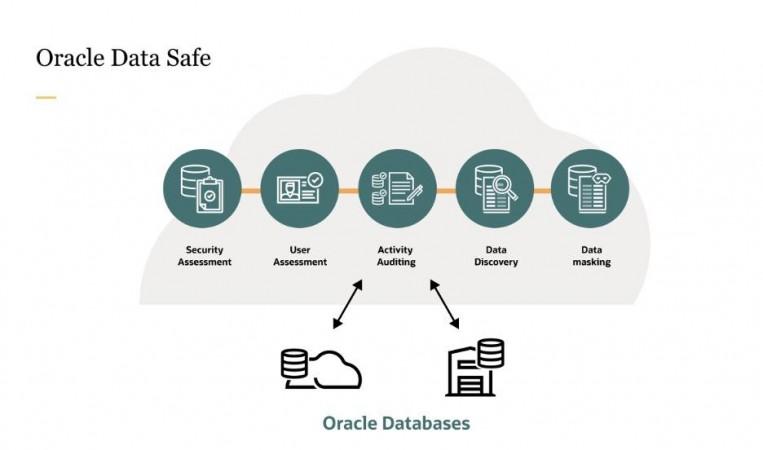
Amid a surge in data breaches globally, Oracle introduces a pioneering tool, the 23 AI Data Safe, setting new standards for database security under the guidance of seasoned expert Manjunatha Sughaturu Krishnappa.
In 2024 alone, the frequency of data breaches has tripled, and the financial impact of compromised data has reached record highs, with fines soaring to as much as $1.3 billion for major organizations. As digital threats proliferate, companies face unprecedented pressure to safeguard sensitive data without compromising operational efficiency. Enter Oracle's latest offering, the Oracle 23 AI Data Safe—an innovative, AI-driven solution that transforms how organizations handle database security and regulatory compliance.
At the forefront of this effort is Manjunatha Sughaturu Krishnappa, an industry veteran and recognized subject matter expert in Oracle databases, who has been instrumental in implementing Oracle 23 AI Data Safe across diverse industries.
Advanced Data Security Reimagined
Oracle 23 AI Data Safe represents a breakthrough in database security by automating critical elements of data protection and making them accessible for organizations of all sizes. Leveraging artificial intelligence, this tool provides a comprehensive suite of features that aim to simplify and enhance data security.
"Data breaches are not just costly; they threaten customer trust and organizational reputation," says Krishnappa. "Oracle 23 AI Data Safe addresses this by enabling businesses to proactively secure their databases, anticipate threats, and respond swiftly."
The key features of Oracle 23 AI Data Safe include:
1. Data Discovery & Classification: The automated data discovery tool scans databases to identify and classify sensitive data, such as personal identifiers, financial information, and health records. This classification not only locates sensitive data but categorizes it based on risk levels, helping businesses prioritize their security measures effectively. This feature is vital for compliance with regulations like GDPR and HIPAA.
"It's not enough to locate data; understanding its context and potential vulnerabilities is critical," Manjunatha emphasizes. "Data classification empowers organizations to implement targeted security protocols that align with regulatory standards."
2. User Risk Assessment: One of the most significant challenges in database security is managing insider threats. Oracle 23 AI Data Safe's User Risk Assessment tool monitors and analyzes user activity in real-time, identifying abnormal patterns, such as unusual login attempts or access frequency. This proactive threat detection enables companies to swiftly address potential security risks from within.
"Insider threats are a growing concern, and early detection is key," Manjunatha notes. "By analyzing user behavior, we give organizations the tools they need to intervene before any damage is done."
3. Security Monitoring & Audit: In today's regulatory environment, compliance is non-negotiable. Oracle 23 AI Data Safe's security monitoring and auditing capabilities ensure organizations can comply with regulations like PCI-DSS, CCPA, and HIPAA. By tracking data modifications, policy breaches, and other critical events in real time, the tool provides detailed audit logs, essential for compliance audits and incident response.
"Effective monitoring and auditing are at the heart of data security," explains Manjunatha. "With Oracle 23 AI Data Safe, organizations gain visibility into database activity and can respond to incidents with detailed, actionable insights."
4. Advanced Data Masking: Protecting sensitive data during software development and testing is a challenge often overlooked by businesses. Oracle 23 AI Data Safe offers a solution with its Advanced Data Masking feature, which replaces sensitive information with fictitious yet realistic data, ensuring that non-production environments are secure.
"Development cycles don't always consider security as a priority," adds Manjunatha. "Data masking secures data during testing and development, minimizing risk while maintaining realistic datasets."
A Legacy of Leadership and Innovation
Manjunatha Sughaturu Krishnappa has long been recognized for his contributions to Oracle's data security framework. From guiding large-scale Oracle RAC environment upgrades to managing critical incidents for Fortune 100 clients, his work has consistently focused on enhancing data protection capabilities. Beyond the technical implementations, he actively engages in educating Oracle's clients, leading workshops, consultations, and onboarding processes that ensure effective adoption of Oracle 23 AI Data Safe.
"Oracle 23 AI Data Safe isn't just another tool in the security arsenal; it's a strategic evolution in how we approach database security," says Manjunatha. His guidance has been particularly impactful for financial institutions, healthcare providers, and government agencies that rely on this tool to meet strict regulatory requirements while safeguarding valuable data assets.
Oracle 23 AI Data Safe delivers significant results across industries:
- Finance: Streamlines PCI-DSS compliance, reducing costs and enhancing data protection.
- Healthcare: Enhances patient information security, supporting HIPAA compliance and safer healthcare management.
- Government: Improves threat detection and compliance, enabling quicker responses to security incidents.
"Our clients appreciate not only the security and compliance benefits but also the operational efficiency Oracle 23 AI Data Safe provides," says Manjunatha.
A Path Forward for Data Security
Oracle 23 AI Data Safe simplifies data security with automation, reducing complexity and boosting protection. "It's about enabling secure growth," Manjunatha adds. Under his leadership, Oracle 23 AI Data Safe sets a new benchmark in database security, providing a scalable, intelligent solution for modern data protection challenges.
"The views and opinions expressed here are solely those of Manjunatha Sughaturu Krishnappa and do not necessarily reflect the official stance of Oracle Corporation."
Disclaimer: (This article is a paid publication programme.IBTimes claims no editorial involvement and assumes no responsibility, liability or claims for any errors in the content of the article.)
















